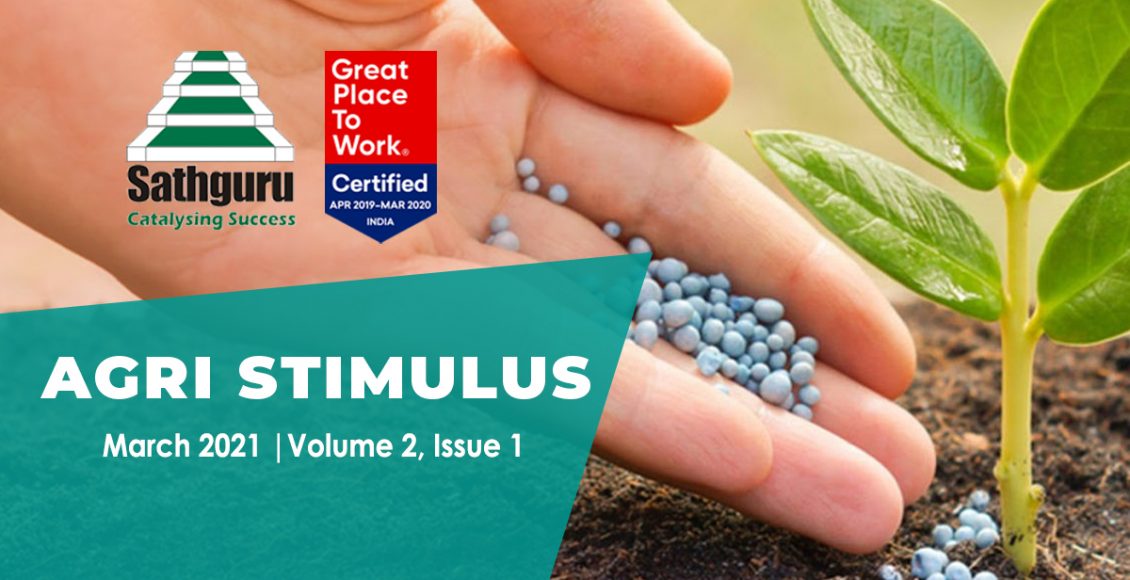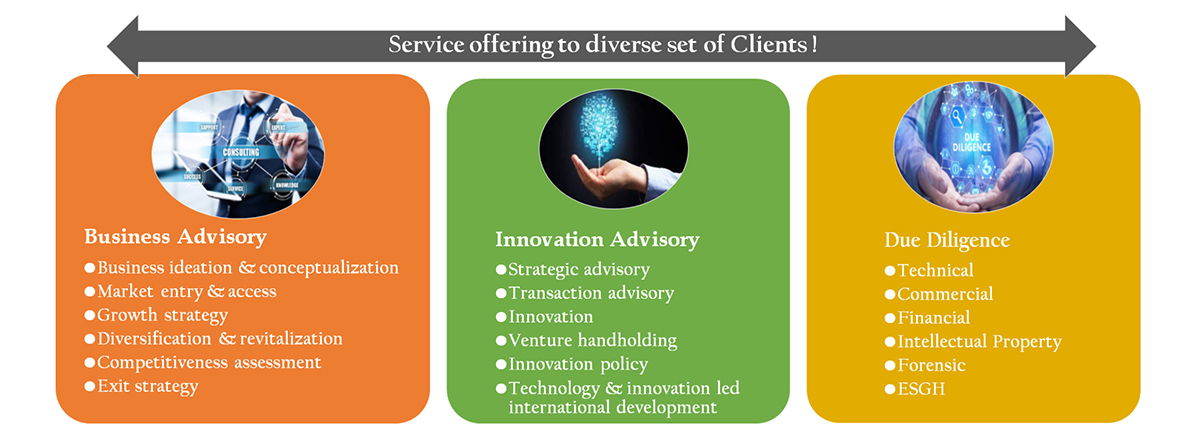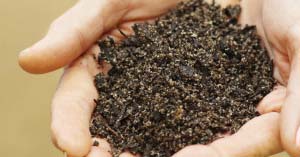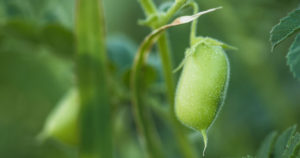
Ag biologicals: A surging business opportunity
Seaweeds based Biostimulant- an upcoming ag-biological
New regulations for Biostimulants – A step forward !
Use of Ag Biologicals in Indian Agriculture – ‘Challenges and way forward’
In the recent years, keenness on using Agricultural Biologicals in India has increased many folds all the way through crop production and protection. Primarily field-oriented research studies have demonstrated the commercial benefits of these products and dependable performance in integrated crop, pest, and disease management systems. It is observed that India occupies a comparatively healthier position in the arena of Ag biologicals, in terms of growth of usage, percentage share of the total Ag product market and in research publications. Most of the Ag Biologicals are derived from living organisms such as plants, insects, animals, microbes, and others. They can be altered to improve suitability for agricultural uses. These naturally occurring solutions can complement on fertilizer use efficiency and reduce pesticide load to help farmers to improve crop health and productivity to a greater extent while limiting the environmental impact of agriculture. Naturally occurring pheromones, biostimulants, natural proteins and chitin helps to manage pests through nontoxic mechanisms or by modifying the behaviour. Microbials such as fungi, bacteria, virus and protozoa are more importantly used biologicals for pest and disease management. Microbial products are derived from naturally occurring microorganism such as bacteria, fungi or nematodes can be applied on crops to protect plants from pestsand diseases or in the soil to enhance plant productivity and soil fertility. Each individual strain is relatively specific to a particular target pest like weeds, insects, and diseases. They have the potential to deliver sustainable, cost effective solutions that lead to increased yield with meagre input. Commercially available microbial products especially fungal based products controls thrips, mite and coleopteran pests of crops. Biofertilizers having beneficial microbes can help to improve plant access to use nitrogen, phosphate, potassium and other nutrients by mounting along with roots to enhance the plant uptake. Biological products can be a major component in the integrated pest, disease, and crop management.
performance in integrated crop, pest, and disease management systems. It is observed that India occupies a comparatively healthier position in the arena of Ag biologicals, in terms of growth of usage, percentage share of the total Ag product market and in research publications. Most of the Ag Biologicals are derived from living organisms such as plants, insects, animals, microbes, and others. They can be altered to improve suitability for agricultural uses. These naturally occurring solutions can complement on fertilizer use efficiency and reduce pesticide load to help farmers to improve crop health and productivity to a greater extent while limiting the environmental impact of agriculture. Naturally occurring pheromones, biostimulants, natural proteins and chitin helps to manage pests through nontoxic mechanisms or by modifying the behaviour. Microbials such as fungi, bacteria, virus and protozoa are more importantly used biologicals for pest and disease management. Microbial products are derived from naturally occurring microorganism such as bacteria, fungi or nematodes can be applied on crops to protect plants from pestsand diseases or in the soil to enhance plant productivity and soil fertility. Each individual strain is relatively specific to a particular target pest like weeds, insects, and diseases. They have the potential to deliver sustainable, cost effective solutions that lead to increased yield with meagre input. Commercially available microbial products especially fungal based products controls thrips, mite and coleopteran pests of crops. Biofertilizers having beneficial microbes can help to improve plant access to use nitrogen, phosphate, potassium and other nutrients by mounting along with roots to enhance the plant uptake. Biological products can be a major component in the integrated pest, disease, and crop management.
In India, the Ag Biological products market is growing progressively at the rate of 14 % than the chemicals of about 2 %, although their volumes are still less critical. There are many national and international companies are introducing innovative technology products, their market is growing, and prominence will be more in the coming years. Biological products are increasingly used in combination with traditional bio inputs like compost manure, vermicompost etc., in both conventional and organic agriculture.
Ag Biologicals yet facing issues on regulatory approvals since suitable guidelines are not available. Certain bacterial, fungal, and viral formulations designated for pest and disease control were brought under guidelines of Central Insecticide Board (CIB), Ministry of Agriculture for registration. Whereas bio and organic fertilizers were kept under Fertilizer Control Order (FCO) 1985 in section 3 of essential commodities by Ministry of Agriculture, Government of India for approval. New characters of bacteria, fungi, and their combinations (consortia) cannot find a way to be registered since guidelines are not available. Even in bio-fertilizers category, only FCO prescribed microbes are approved for use through State Agriculture Departments. Scientists in the Universities/ Research Institutes and Establishments working on biological products research should be able to submit the data and get their new Ag Biologicals approved for use. Present guidelines need to be revised as per the requirements. Counterfeit bio products (laced with chemical pesticides) need to be clogged which is dragging behind the potential use of biologicals in Agriculture.
Strategic collaboration to discover, develop and launch novel biological approaches to enhance soil fertility:
AgBiome and Mosaic support the development of innovative agricultural technologies that help growers increase nutrient use efficiency and ultimately minimize fertilizer loss to the environment. This collaboration will allow to leverage AgBiome’s proprietary platform that comprises the world's largest, most diverse, fully-sequenced collection of microbes coupled with innovative product discovery technology. Mosaic will lend its industry-leading expertise in soil health and product development, as well as its global distribution and sales network.
Read More
Novel method of storing and delivering microbes through biocapsules receives patent:
The use of bio-capsules will help to reduce the use of pesticides and chemical fertilizers in addition to improving soil quality and environmental conditions,. The patent was issued for the method after detailed examination and analysis of the technology developed by the scientists of Indian Institute of Spices Research (IISR). IISR Bio-capsule is the first encapsulated bio fertilizer. The patented product is used for spices cultivation, vegetable cultivation and other crops.
Read More
World’s first GE tomato launched, developed using CRISPR/Cas9 technology:
Sicilian Rouge High GABA tomato was developed by Sanatech Seed, the Japanese start-up using cutting edge CRISPR/Cas9 gene editing technology. It contains high levels of Gamma-AminoButyric Acid (GABA), an amino acid believed to aid relaxation and help lower blood pressure. Sicilian Rouge is a popular tomato, and consumers are already used to buying products with a high GABA content so the new product will not be a surprise for the consumers.
Read More
Yellow tomato with high levels of pro-lycopene developed through Genome editing:
Kochi based Agrigenome labs, has demonstrated the application of the CRISPR Cas9 technology to change the colour of tomato to yellow and improve its traits. This was achieved by editing the gene that codes for CRTISO, an enzyme which is responsible to make the red pigment lycopene. The research was done in collaboration with SciGenom Research Foundation and SciGenom Labs.
Read More
Next Generation Microbiome Research predicted by Purdue University:
Research related to microbes have not reached the level where the crops are benefited. Recently group of scientists in Purdue reviewed the research paper on agricultural microbiome that comprehensively combines knowledge about plant, soil and insect microbes work to portray an integrated complex interactions to harness microbes to improve crops.
Read More
Meristem partners with Planet Earth for developing biologicals:
Meristem Crop Performance Group and Planet Earch Agronomy enters into a strategic product development alliance for developing biologicals in USA. Meristem have experience of working in biologicals and biostimulants all over the world and Planet Earch provides agronomic solutions to growers for nearly 30 years.
Read More
Patent granted to PowerPollen® for pollination ondemand technology:
The U.S. Patent and Trademark Office (USPTO), has recently granted patent to PowerPollen®, an agtech company for applying preserved or fresh pollen outside the window of natural pollination of maize seed. With this technology pollination is no longer dependent on the window period of approximately three hours of male plant’s daily shedding. Collected pollen can be applied to female plants at any time of day or night thus aiding in maximize yield and reduce the impact of adverse weather conditions that hinder pollination.
Read More
AI to automate and streamline seed quality analysis:
The researchers used light-based technology like that deployed in plant and cosmetics analysis to acquire images of the seeds. They have used machine learning to automate the image interpretation process, minimizing some of the difficulties of conventional methods. The process provides information about the seed’s chemical composition, from which its quality can be inferred. The technique is non-invasive and does not destroy the products analyzed or generate residues.
Read More
Terabytes of geospatial data open for agri-tech entrepreneurs and businesses:
Skymet is providing free access to its 10-year geospatial proprietary farm-level data repository through a digital platform ‘SkAlgeo’. The datasets include Greenness Index, the Standard Precipitation Index, information related to crop health and soil moisture among others. This gives an opportunity for people to explore and develop different use cases.
Read More
Squash variety released by Rijk Zwaan with resistance to New Delhi virus:
Past decade Tomato Leaf Curl New Delhi (ToLCNDV) virus for squash growers in the Mediterranean region is causing several damages resulting in lower yields. Leading vegetable breeding company, Rjik Zwaan has recently released resistant variety with first batch of seeds already supplied to selected growers for use in upcoming season.
Read More
Click here to Download the PDF version
Authors





Connect with Authors at: E-mail agribusiness@sathguru.com
 Grow Beyond
Grow Beyond 





